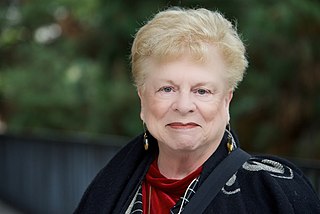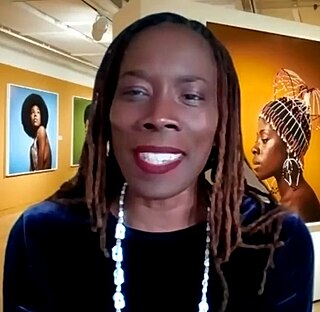Related Research Articles

A psychologist is a professional who practices psychology and studies mental states, perceptual, cognitive, emotional, and social processes and behavior. Their work often involves the experimentation, observation, and interpretation of how individuals relate to each other and to their environments.
Applied psychology is the use of psychological methods and findings of scientific psychology to solve practical problems of human and animal behavior and experience. Educational and organizational psychology, business management, law, health, product design, ergonomics, behavioural psychology, psychology of motivation, psychoanalysis, neuropsychology, psychiatry and mental health are just a few of the areas that have been influenced by the application of psychological principles and scientific findings. Some of the areas of applied psychology include counseling psychology, industrial and organizational psychology, engineering psychology, occupational health psychology, legal psychology, school psychology, sports psychology, community psychology, neuropsychology, medical psychology and clinical psychology, evolutionary psychology, human factors, forensic psychology and traffic psychology. In addition, a number of specialized areas in the general area of psychology have applied branches. However, the lines between sub-branch specializations and major applied psychology categories are often mixed or in some cases blurred. For example, a human factors psychologist might use a cognitive psychology theory. This could be described as human factor psychology or as applied cognitive psychology. When applied psychology is used in the treatment of behavioral disorders there are many experimental approaches to try and treat an individual. This type of psychology can be found in many of the subbranches in other fields of psychology.
School psychology is a field that applies principles from educational psychology, developmental psychology, clinical psychology, community psychology, and behavior analysis to meet the learning and behavioral health needs of children and adolescents. It is an area of applied psychology practiced by a school psychologist. They often collaborate with educators, families, school leaders, community members, and other professionals to create safe and supportive school environments.
Clinical psychology is an integration of human science, behavioral science, theory, and clinical knowledge for the purpose of understanding, preventing, and relieving psychologically-based distress or dysfunction and to promote subjective well-being and personal development. Central to its practice are psychological assessment, clinical formulation, and psychotherapy, although clinical psychologists also engage in research, teaching, consultation, forensic testimony, and program development and administration. In many countries, clinical psychology is a regulated mental health profession.
Counseling psychology is a psychological specialty that began with a focus on vocational counseling, but later moved its emphasis to adjustment counseling, and then expanded to cover all normal psychology psychotherapy. There are many subcategories for counseling psychology, such as marriage and family counseling, rehabilitation counseling, clinical mental health counseling, educational counseling, etc. In each setting, they are all required to follow the same guidelines.
Health psychology is the study of psychological and behavioral processes in health, illness, and healthcare. The discipline is concerned with understanding how psychological, behavioral, and cultural factors contribute to physical health and illness. Psychological factors can affect health directly. For example, chronically occurring environmental stressors affecting the hypothalamic–pituitary–adrenal axis, cumulatively, can harm health. Behavioral factors can also affect a person's health. For example, certain behaviors can, over time, harm or enhance health. Health psychologists take a biopsychosocial approach. In other words, health psychologists understand health to be the product not only of biological processes but also of psychological, behavioral, and social processes.
Psychology encompasses a vast domain, and includes many different approaches to the study of mental processes and behavior. Below are the major areas of inquiry that taken together constitute psychology. A comprehensive list of the sub-fields and areas within psychology can be found at the list of psychology topics and list of psychology disciplines.
Pediatric psychology is a multidisciplinary field of both scientific research and clinical practice which attempts to address the psychological aspects of illness, injury, and the promotion of health behaviors in children, adolescents, and families in a pediatric health setting. Psychological issues are addressed in a developmental framework and emphasize the dynamic relationships which exist between children, their families, and the health delivery system as a whole.
Carol D. Goodheart is an American psychologist and a past president of the American Psychological Association (APA). Goodheart worked as a nurse before entering psychology. She completed a doctorate in counseling psychology from Rutgers University. While serving as the 2010 APA president, Goodheart supported the Presidential Task Force on Advancing Practice and the Presidential Task Force on Caregivers. Goodheart is in private practice in Princeton, New Jersey.

Janet E. Helms is an American research psychologist known for her study of ethnic minority issues. A scholar, author and educator, she is most known for her racial identity theory that is applied to multiple disciplines, including education and law. She received the 2006 Award for Distinguished Contributions to Education and Training in Psychology from the American Psychological Association.
Lisa A. Goodman is an American counseling psychologist known for her research on domestic violence and violence against women. She is Professor of Counseling Psychology at the Lynch School of Education at Boston College. Goodman is a Fellow of the American Psychological Association, Division of Counseling Psychology.
Cynthia D. Belar is a scientist known for her contributions to clinical psychology with specific focus on health psychology, clinical service, and education. She is a Professor Emerita at the University of Florida Health Science Center.
Dawn Marie Szymanski is an American psychologist. She is a Full professor and Editor-In-Chief of the Society for the Psychology of Women's journal, Psychology of Women Quarterly.
Elizabeth Mitchell Altmaier is a counseling psychologist whose clinical and academic work has focused on issues related to overcoming life-threatening and traumatic circumstances. Altmaier is Professor Emeritus at the University of Iowa.

Oliva Maria Espín is a Cuban American counseling psychologist known for her pioneering intellectual contributions to feminist therapy, immigration, and women's studies, and her advocacy on behalf of refugee women to help them to gain access to mental health services. Her interdisciplinary scholarly work brings together perspectives from sociology, politics, and religion to further understanding of issues and barriers related to gender, sexuality, language, and race. She is in the vanguard of transnational psychology, that applies transnational feminist lenses to the field of psychology to study, understand, and address the impact of colonization, imperialism, and globalization. She is the first Latina Professor Emerita of Women’s Studies at San Diego State University.
Rosemary Elaine Phelps is an American counseling psychologist whose work has focused on racial identity and the race-related stress experienced by racially diverse students and faculty in higher education. She is known for her advocacy and mentoring of students and faculty of color and her commitment to training counseling psychologists to be culturally responsive and competent. Phelps is Professor and Coordinator of Undergraduate Service Courses in the Department of Human Counseling and Services at the University of Georgia.
Marguerita Lightfoot is a counseling psychologist known for her research in the field of preventive medicine, especially in regard to HIV prevention and advocacy for homeless youth. She is Professor of Medicine at the University of California, San Francisco School of Medicine and the Chief of the Division of Prevention Science. She serves on the National Academies of Sciences, Engineering, and Medicine Committee on Fostering Healthy Mental, Emotional, and Behavioral Development among Children and Youth.
Nadya A. Fouad is an American vocational psychologist. She is the Editor-in-Chief of Journal of Vocational Behavior and distinguished professor and chair of the Department of Educational Psychology at the University of Wisconsin-Milwaukee.

Lillian Comas-Díaz is an American psychologist and researcher of multiethnic and multicultural communities. She was the 2019 winner of American Psychological Association (APA) Gold Medal Award for Life Achievement in the Practice of Psychology. In 2000, she received the APA Award for Distinguished Senior Career Contribution to the Public Interest.

Thema S. Bryant, also known as Thema Bryant-Davis, is an American psychologist who is a professor of psychology at the Pepperdine University, where she directs the Culture and Trauma Research Laboratory. Her research considers interpersonal trauma and societal trauma of oppression. She was elected as the 2023 President of the American Psychological Association.
References
- ↑ "Sally Hage | Springfield College". springfield.edu. Retrieved 2023-05-18.
- ↑ "Editorial board - Journal of Prevention and Health Promotion" . Retrieved May 20, 2024.
- ↑ Hage, Sally (March 11, 2020). "Editorial". Journal of Prevention and Health Promotion. 1 (1): 3–4. doi:10.1177/2632077020910283.
- ↑ "2008 American Psychological Association award winners". www.apa.org. Retrieved 2023-03-08.
- ↑ "APA's new Fellows". American Psychological Association. October 2014. Retrieved 2024-05-21.